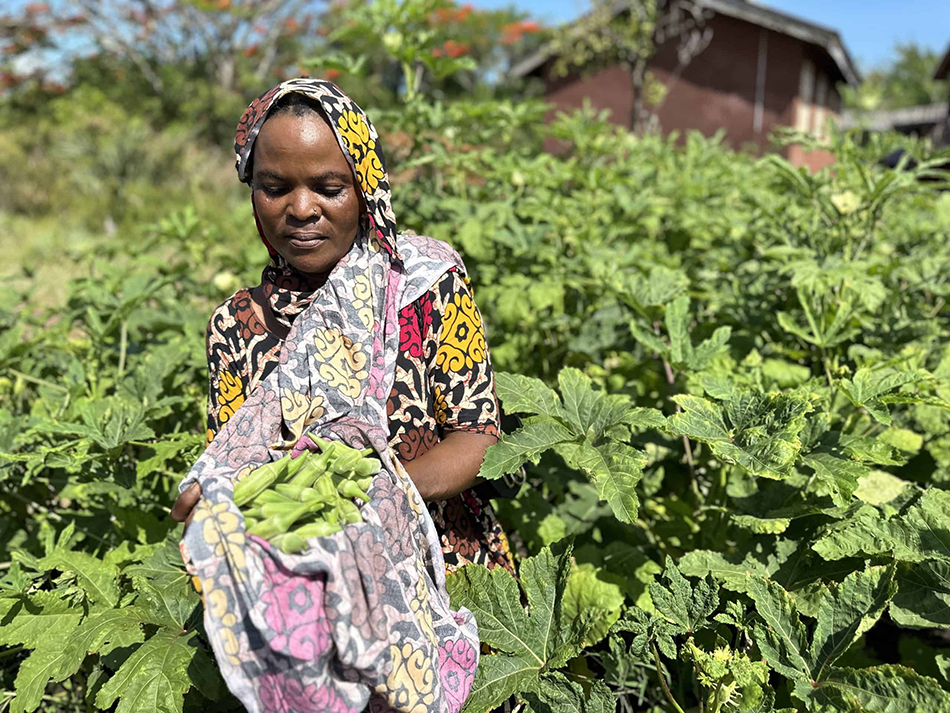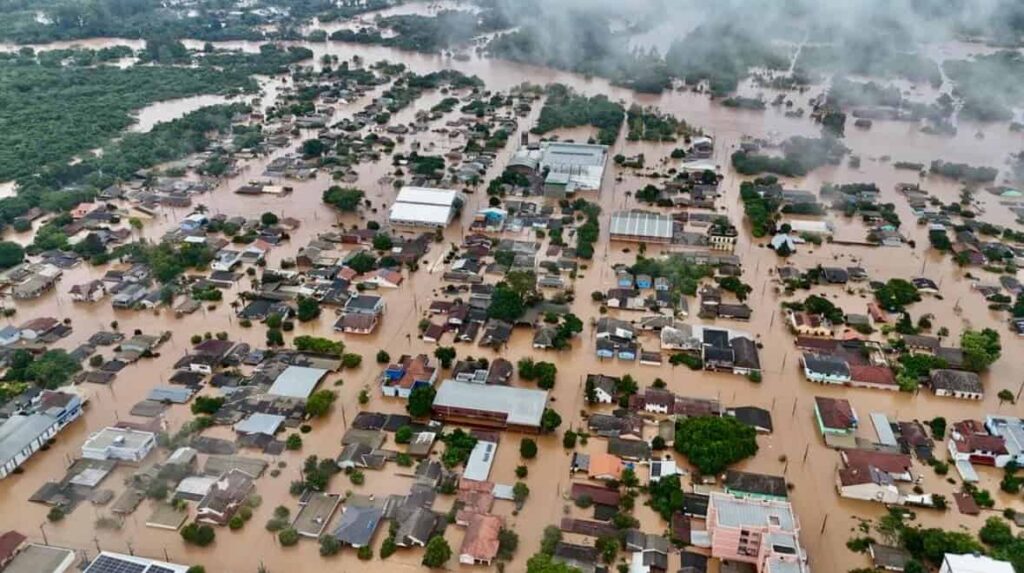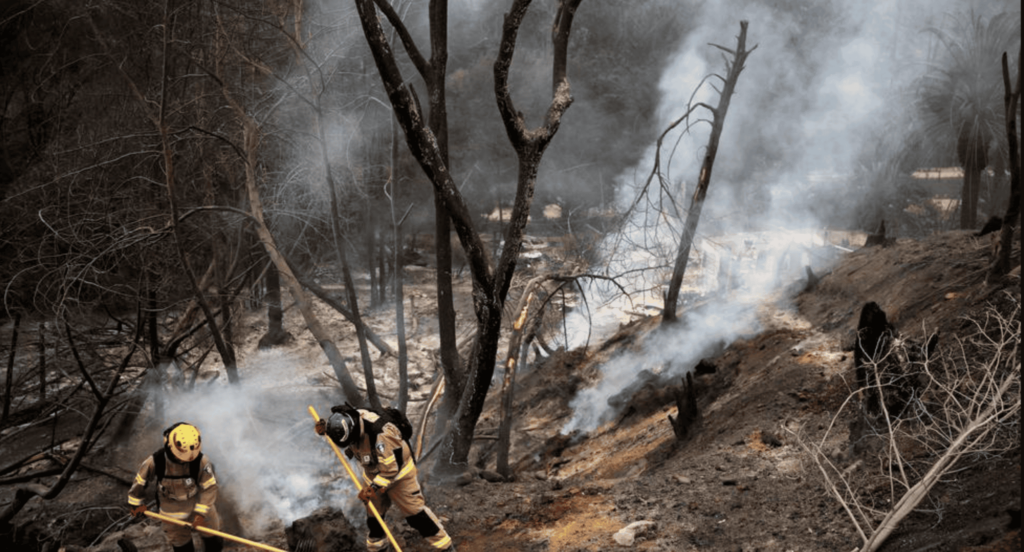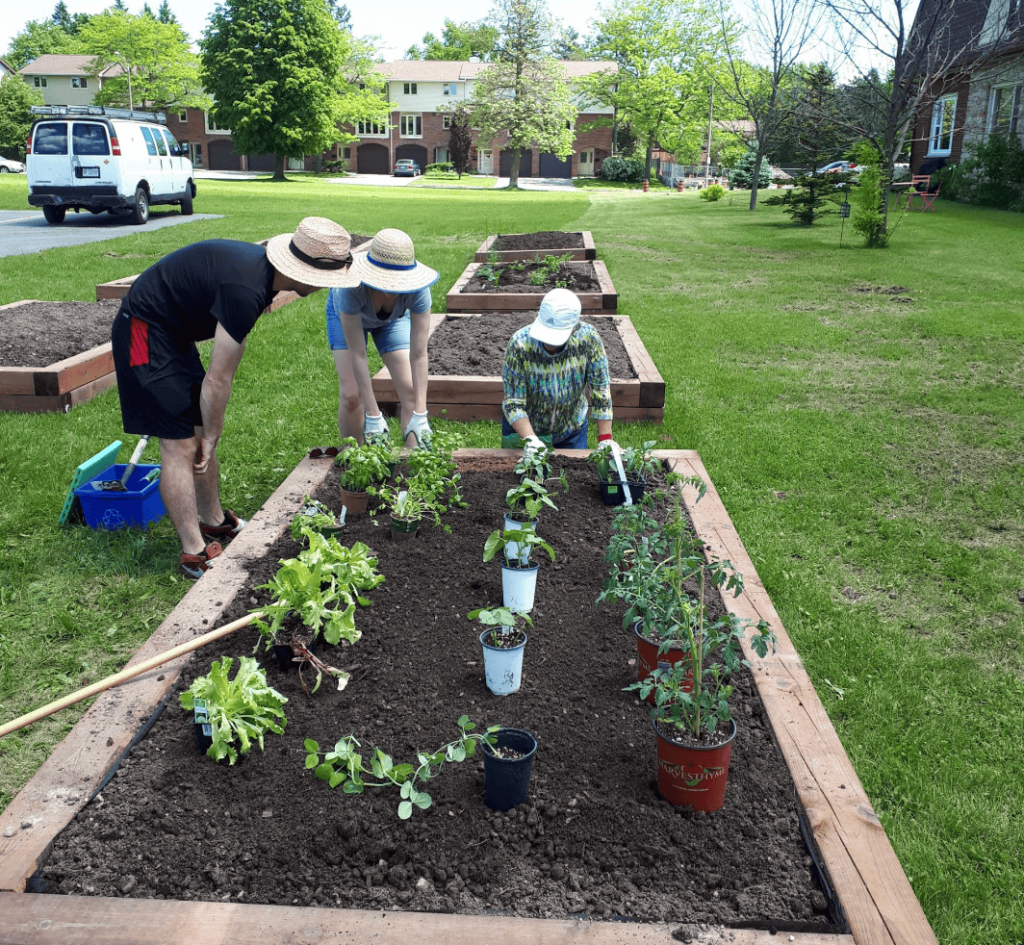
Hadija in her COVID-19 response community garden in Tanzania. [Photo: ADRA International]
Sustainable Solutions for a Changing World
As wildfires and weather-related disasters grow in intensity and frequency, leaving behind scorched land, unstable ecosystems, and deepening food insecurity, ADRA responds with compassion and innovation. Through such initiatives as Community Garden Kits, reforestation efforts, and weather-smart agriculture, ADRA is restoring damaged land, strengthening local food systems, and helping communities build long-term resilience.
In Canada, and in response to devastating wildfires and soil contamination in Yellowknife, ADRA Canada launched the Community Planter Box Project to promote food security through urban gardening. This initiative helped spearhead a national campaign encouraging eco-based gardens that promote health and environmental awareness.
In Zambia, in drought-affected regions, ADRA partners with local churches to provide communities with seeds, tools, and training to create sustainable household and community gardens, preparing families to grow their own food and share sustainable practices.

Flash floods in southern Argentina. [Photo: ADRA Argentina]
In Mozambique, on the other hand, children and parents learn how to prepare soil for seedlings through conservation education programs that encourage active participation in reforestation and land stewardship.In Honduras, in highland regions, ADRA equips rural communities with drought-resistant sorghum seeds, helping them transition from water-intensive wheat to crops better suited for the weather, supporting both nutrition and sustainability.
ADRA’s Reforesting for Recovery
As part of its commitment to disaster response and long-term recovery, ADRA prioritizes reforestation as a powerful tool for environmental healing and resilience. ADRA’s emergency response teams integrate reforestation into its global disaster mitigation program by actively engaging in planting native seedlings to help restore natural habitats, stabilize soil, reduce erosion, and improve water quality. This makes reforestation an essential step in rebuilding ecosystems and strengthening community resilience after disasters strike.

Forest fires demand immediate assistance and long-term plans of reforestation. [Photo: ADRA Chile]
Take Action: #GoGreenWithADRA
ADRA invites individuals, churches, schools, and communities to#GoGreenWithADRA by promoting environmental stewardship through hands-on initiatives, education, and building resilience.
Green projects include land rehabilitation (garden and tree-planting projects reduce erosion, enrich soil, and restore damaged ecosystems) and sustainable food sources (community gardens empower local food production in areas with access to fresh produce). They also include conservation education: ADRA partners with local organizations to raise awareness and teach sustainable practices and community healing. Green spaces foster connection, wellness, and collaboration, especially after crises.

Canadian community members participate in a garden project. [Photo: ADRA Canada]
“ADRA continues to plant seeds of hope, whether by establishing community gardens to ensure access to nutritious food or by implementing erosion control projects to restore degraded land,” Madanat said. “These efforts go beyond environmental programs; they are acts of faith in action, helping communities heal, thrive, and prepare for a better tomorrow.”
The original version of this story was posted by the Adventist Development and Relief Agency.



